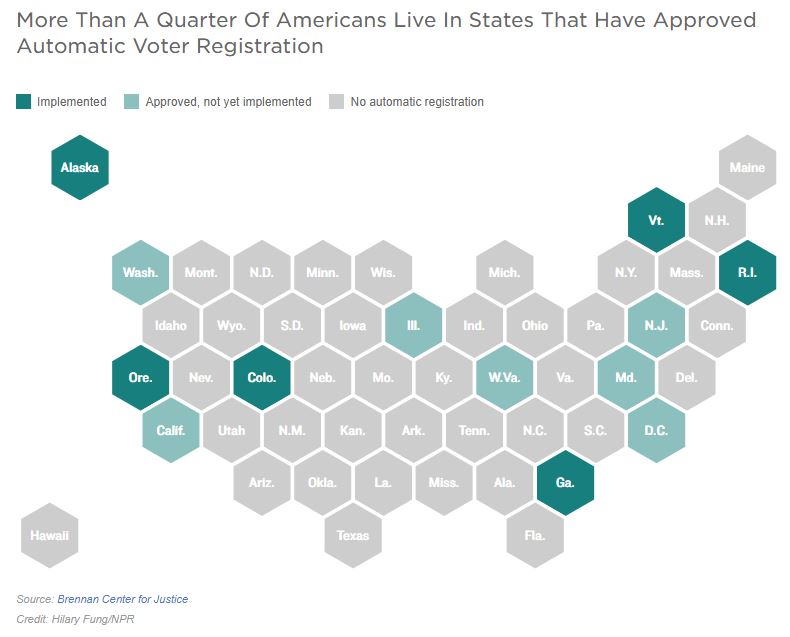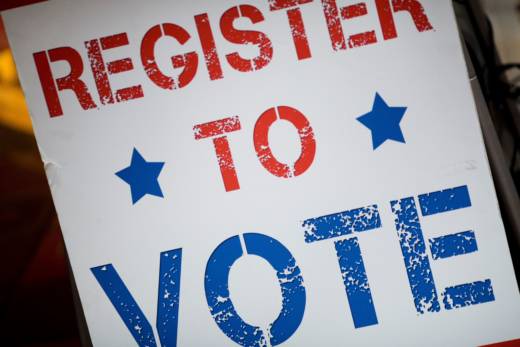While many voting rights laws have sparked controversy over the last decade, this voting policy is seen by many as bipartisan — a mechanism that modernizes the voting system and saves taxpayer dollars. In Georgia, for example, the switch was approved administratively by the Department of Driver Services in 2016 during Secretary of State Brian Kemp's time in office. Kemp, a Republican, is now running for governor.
In California, eligible applicants who complete a driver's license, ID card or change of address transaction with the DMV will be automatically registered to vote unless they choose to opt out. The current voter registration system requires residents to fill out a separate form. In some states that register voters automatically, state agencies, such as the health insurance exchange or social service agencies, will also add previously unregistered voters to the rolls.
One argument proponents make is that automated registration streamlines voter registration, reducing the number of paper forms required and the amount of government staff time needed.
"We want efficiency in our government and this is certainly a way to get it," Tennant said.
To assuage Republican fears about voter fraud, supporters of AVR also argue the system makes voter rolls more accurate and up-to-date, reducing the chance that ineligible voters can cast a ballot.
Still, opponents have raised concerns that people who are legally ineligible to vote could be registered under AVR.
Election officials say there are steps in place to protect against that. California, for example, allows undocumented residents to get driver's licenses — state officials announced earlier this month that more than a million such cards have been issued since the law went into effect in 2015. But undocumented residents will be ineligible to register to vote, and state law prohibits California's DMV from submitting their information to the secretary of state's office.
The new application includes a series of eligibility questions that ask whether an applicant is a U.S. citizen, a resident of California, at least 18 years old, not currently in state or federal prison or on parole for a felony conviction, and whether he or she has been found mentally incompetent to vote by a court. Voter registration data received from the DMV are also checked against existing records in California's statewide voter registration database, according to Sam Mahood, press secretary for California's Secretary of State Alex Padilla.
The shift to automatic voter registration could bring millions of new voters into the political process. In California, as many as 2 million additional voters could be registered ahead of the 2020 election, according to estimates by Paul Mitchell, the vice president of the bipartisan data vendor Political Data. The latest registration report in California shows there are 18,980,481 registered voters in the state as of early January.
"Overall this should have a rather significant increase in voter registrations. Whether that correlates to turnout is a different question," Mitchell said.
Mitchell points out registering to vote doesn't guarantee people will take time to vote, but says it does remove an administrative hurdle.
In Oregon, the first state to pass automated voter registration back in 2015, there have been some early signs that the change may be increasing turnout. About 100,000 voters who were registered through the new system showed up to vote in 2016. The state saw a 4 percent increase in voter turnout from 2012 to 2016.
Copyright 2018 KPCC. To see more, visit KPCC.

